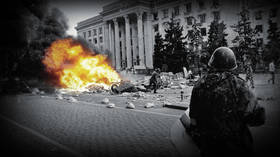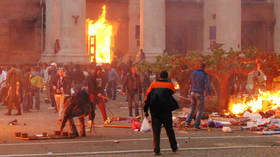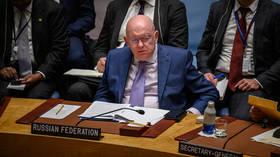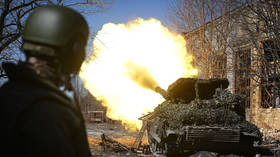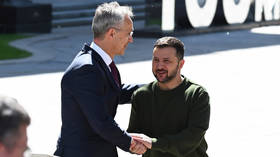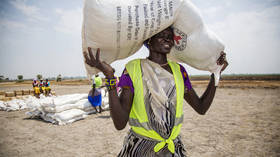Ukraine Interior Ministry was ‘uncooperative and obstructive’ in Maidan crimes probe – EU report
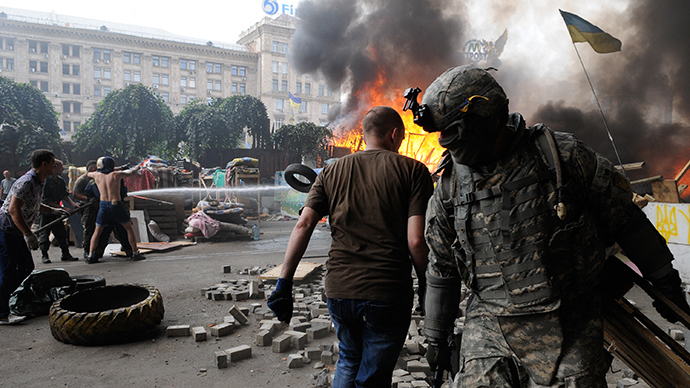
The investigation into Maidan violence during Ukraine’s coup didn’t satisfy the requirements of the European Convention on Human Rights, says a report from the European Council, adding that Ukraine’s Interior Ministry was “uncooperative and obstructive.”
The report specifically concentrated on the investigation of violent acts during the three months of Maidan demonstrations: Violent dispersal of the protest by Berkut riot police on November 30, 2013, clashes on January 22, 2014, which resulted in the first deaths of protesters, and February 18-21, 2014, the deadliest days of the Kiev protests.
Before the February 2014 coup, “there was no genuine attempt to pursue investigations,” said a document by the International Advisory Panel. The panel was established by the Council of Europe to review investigations into the violent incidents during the Maidan demonstrations.
“The lack of genuine investigations during the three months of the demonstrations inevitably meant that the investigations did not begin promptly and this constituted, of itself, a substantial challenge for the investigations, which took place thereafter and on which the Panel’s review has principally focused,” the report stated.

The panel added that “the appointment post-Maidan of certain officials to senior positions in the MoI [Ukraine Interior Ministry] contributed to the lack of appearance of independence.”
It also “served to undermine public confidence in the readiness of the MoI to investigate the crimes committed during Maidan.”
The EU experts call the number of investigations performed by the Prosecutor General’s Office (PGO) on Maidan violence “wholly inadequate.”
“The Panel did not consider the allocation of investigative work between the PGO, on the one hand, and the Kyiv [Kiev] City Prosecutor’s Office and the MoI, on the other, to be coherent or efficient,” says the report.

“Nor did the Panel find the PGO’s supervision of the investigative work of the Kyiv [Kiev] City Prosecutor’s Office to have been effective.”
Cooperation by Ukraine’s Interior Ministry “was crucial to the effectiveness of the PGO investigations,” according to the document.
“There are strong grounds to believe that the MoI attitude to the PGO has been uncooperative and, in certain respects, obstructive,” says the report, adding that the “Prosecutor General’s Office didn't take all the necessary steps to ensure effective co-operation” by the Interior Ministry in the investigations.
They also found there were facts of “the grant of amnesties or pardons to law enforcement officers in relation to unlawful killings or acts of ill-treatment” of protesters during the Maidan protests.
READ MORE: Euromaidan anniversary: 21 steps from peaceful rally to civil war
This “would be incompatible with Ukraine’s obligations under Articles 2 and 3 of the Convention,” said the document.
“The serious investigative deficiencies identified in this Report have undermined the authorities’ ability to establish the circumstances of the Maidan-related crimes and to identify those responsible.”
In November 2013, Ukrainians took to the streets after the Ukrainian government postponed an integration deal with the EU.
The Kiev protests lasted months, escalated into street battles, and culminated in the eventual ousting of the government in an armed coup and a civil war in the east of the country.
The brutal dispersal of a protest camp on the morning of November 30 was a turning point in the ensuing events. It’s still unclear who ordered the use of force. Then President Viktor Yanukovich laid the blame on the city's police chief and sacked him. The move, however, did not stop the protest as Maidan activists started to demand the government’s resignation.
READ MORE: Maidan murders: 1 year on, still no justice over Kiev massacre
While protests and sporadic clashes didn’t stop, February saw the deadliest day in the three-month period of the Maidan unrest. A total of 77 people were killed on February 20, according to officials. Thirteen law enforcement troops died of injuries.
In the immediate aftermath of what was dubbed the February massacre, it’s still not clear who the shooters were and whose orders they were following, with both sides blaming one another.
Shortly after a leaked phone call between then-EU Foreign Affairs Chief Catherine Ashton and ex-Estonian Foreign Minister Urmas Paet appeared online.
“There is now stronger and stronger understanding that behind the snipers, it was not Yanukovich, but it was somebody from the new coalition,” Urmas Paet, who then confirmed the authenticity of the leaked call, is heard saying.
A police investigation conducted by the post-coup Kiev authorities managed to produce several suspects, all of them Berkut riot police members, who are currently being prosecuted in Ukraine. The evidence incriminating them has never been made public, with Reuters reporting that the investigation process was flawed.


